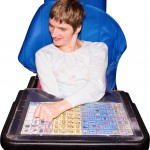
Last week, the Health and Social Care Information Centre published the findings from the 2013 learning disabilities census. The census was commissioned as one of the 63 initiatives in ‘Transforming Care: A national response to Winterbourne View Hospital’ in response to the abuse at Winterbourne View Hospital. The aim was to provide an audit of [read the full story…]









